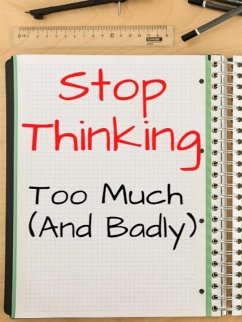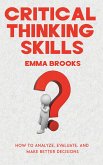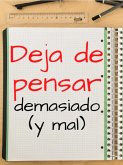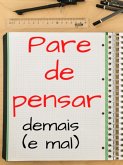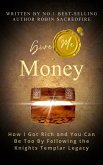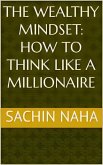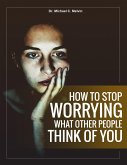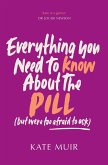What do you need to do to stop thinking and have no more thoughts?
Nothing!
You are the silent presence that occasionally entertains itself with thoughts.
Your true nature is zero thoughts.
But since in a state of enchantment and conditioning it is difficult to recognize one's true nature (peaceful and silent), one must learn to think differently.
Think little instead of thinking too much.
Think well instead of thinking badly.
Thinking too much and badly means: complaining, worrying constantly, seeing everything in a negative way, always having doubts, fearing the unexpected, living in anxiety, etc.
We've all complained a few times, and we've all worried at least once in a lifetime.
This activity, when it becomes excessive, can lead to unbridled thinking, alarmism, neurosis, paranoia. In short, it pushes us to think too much and to think badly.
Brooding is a form of discursive thinking, often accompanied by negative emotions, which leads to everything but finding a solution.
Ruminating (and complaining) can be defined as "the analysis of the problem, even if there are solutions available".
Brooding can be about the past and or the future. It follows that those who ruminate (and oscillate between past / future) never remain in the present.
In other words, when you think too much (and incorrectly) you do not see the reality of the facts, and the solution is hidden under a sea of unnecessary problems.
In this book there are some simple tricks to think less (and better).
After a short practical part, we will make an in-depth study on the difference between thinking well and thinking badly.
I wish you a good read.
Nothing!
You are the silent presence that occasionally entertains itself with thoughts.
Your true nature is zero thoughts.
But since in a state of enchantment and conditioning it is difficult to recognize one's true nature (peaceful and silent), one must learn to think differently.
Think little instead of thinking too much.
Think well instead of thinking badly.
Thinking too much and badly means: complaining, worrying constantly, seeing everything in a negative way, always having doubts, fearing the unexpected, living in anxiety, etc.
We've all complained a few times, and we've all worried at least once in a lifetime.
This activity, when it becomes excessive, can lead to unbridled thinking, alarmism, neurosis, paranoia. In short, it pushes us to think too much and to think badly.
Brooding is a form of discursive thinking, often accompanied by negative emotions, which leads to everything but finding a solution.
Ruminating (and complaining) can be defined as "the analysis of the problem, even if there are solutions available".
Brooding can be about the past and or the future. It follows that those who ruminate (and oscillate between past / future) never remain in the present.
In other words, when you think too much (and incorrectly) you do not see the reality of the facts, and the solution is hidden under a sea of unnecessary problems.
In this book there are some simple tricks to think less (and better).
After a short practical part, we will make an in-depth study on the difference between thinking well and thinking badly.
I wish you a good read.

